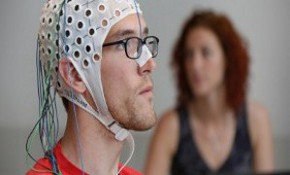You, dear reader, if you are better informed, smarter and more thoughtful than most other people, are also likely to be more in danger of making biased judgments.
That is the conclusion from a new study (‘Cognitive Sophistication Does Not Attenuate the Bias Blind Spot’ - see here for Jonah Lehrer’s discussion of it, ‘Why Smart People Are Stupid’). Psychologists use the term ‘the bias blind spot’ to describe our ability to see the thinking errors of other people while not recognizing the same errors that we constantly make ourselves. The new study demonstrates something that should make us worry: the more intelligent, more sophisticated participants in the experiment showed greater flaws in their thinking.
The irony is obvious: the very people that set themselves up to make decisions for others – indeed, those that we all think are best placed to make the really difficult, important judgments – are no more likely to come to wise conclusions than anyone else. This will not seem a controversial statement if one considers the weekly spectacle of, say, ‘Question Time’, where our top people and a handpicked audience simultaneously display high intelligence and weak arguments. The more difficult a topic is, the greater the self-certainty of wildly opposing views, and the more energetic the applause.
That doesn’t mean we’d be better off with an anti-deliberative process, leaving the most important decisions of state to those people who have tested positive for willful ignorance. In politics, bureaucracy, business and academia we have created methods of slightly improving the odds of making a good decision. Although organizations and committees often encourage group-think, systematically embedding bias, they can also help guard against disastrously wrong conclusions. In spite of everything, we do make progress.
This new research on ‘the bias blind spot’ comes at a good time for me as, to my great excitement, I have just been appointed Chair of the government’s new Data Strategy Board. As everyone from Silicon Valley to the Cabinet Office is now saying, “Data is the new oil”: this burgeoning resource can drive creativity, efficiency, and growth. Making the right decisions in this area is not just for transparency and fairness, but also about competitive edge. I will have the advantage around the table of some of the brightest and most experienced minds from Whitehall, business, and the blessed community of geeks. We will also open up the process to anyone who wants to be a part of it. What we must all remember as we are sitting around deliberating: the smarter we think we are, the more capable we are of getting it horribly wrong.









